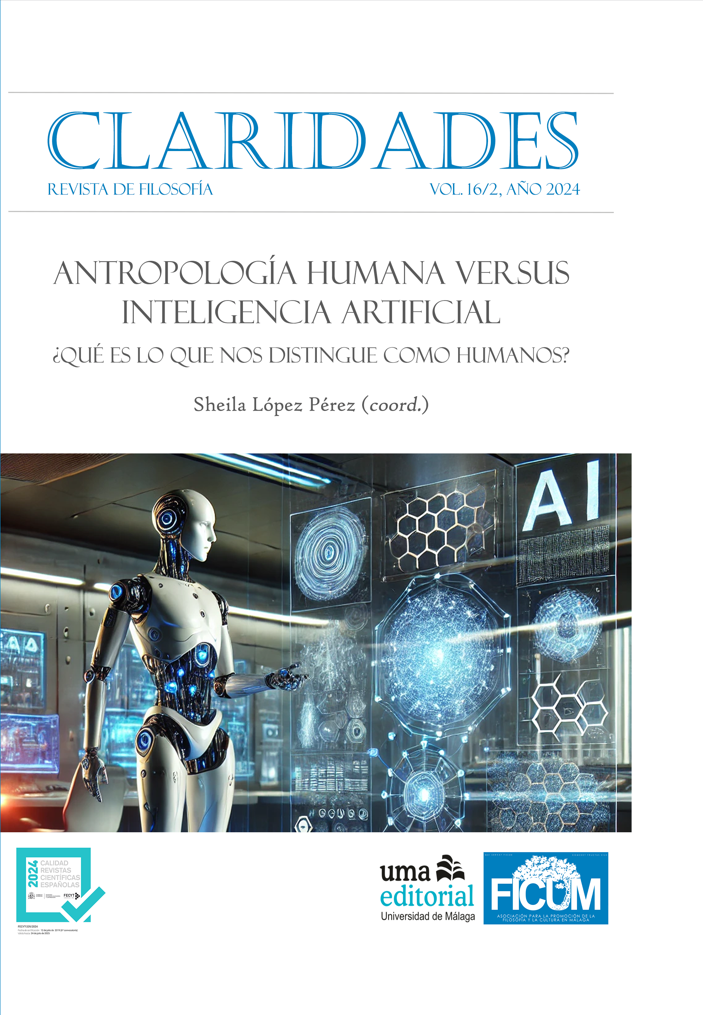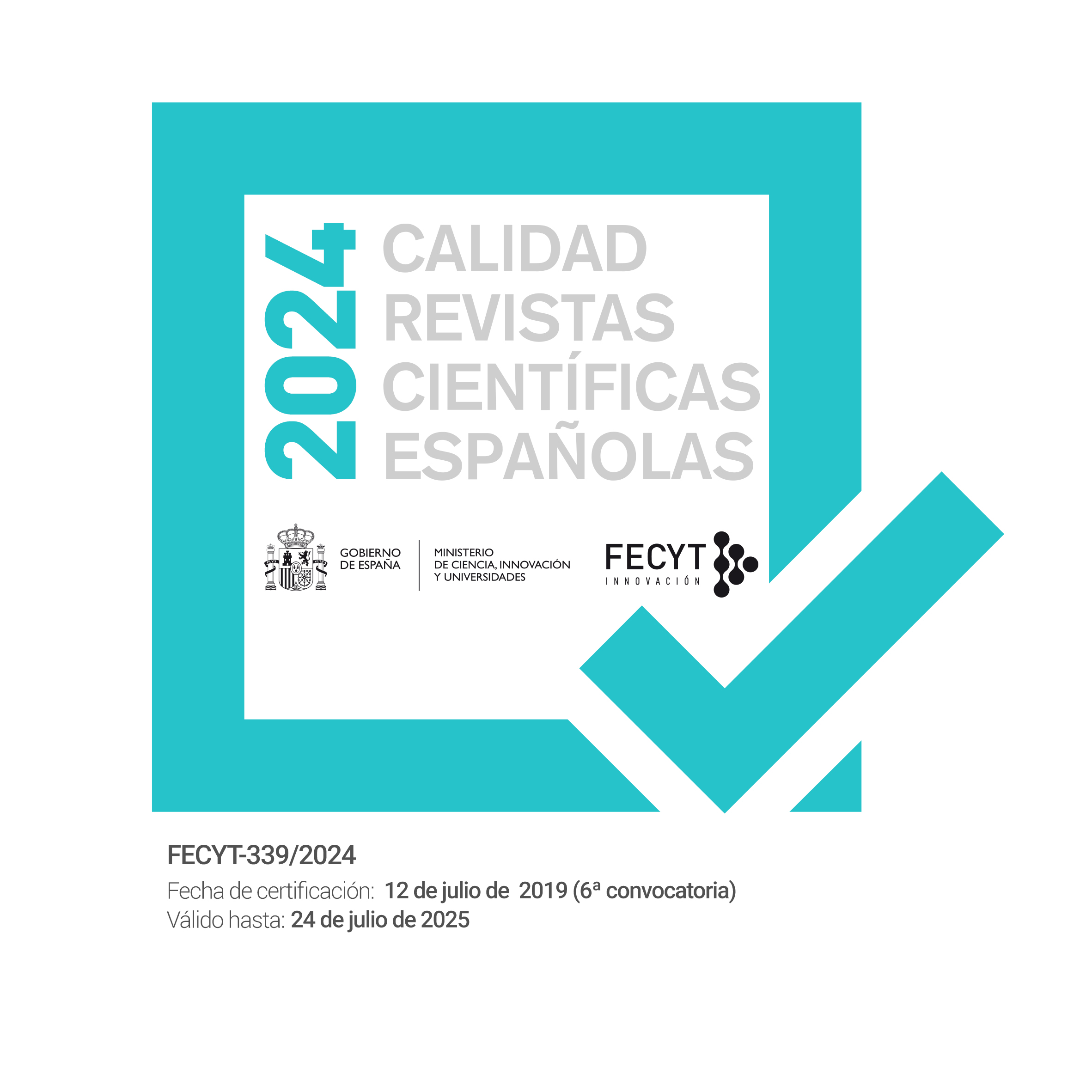Ethics and public values as a guide for action in the face of the expansion of artificial intelligence:
why should public administrations lead the social governance of these disruptive technologies?
DOI:
https://doi.org/10.24310/crf.16.2.2024.19669Keywords:
public administrations, public ethics, governance, Artificial Intelligence, disruptive technology, public valuesAbstract
The accelerated expansion of disruptive technologies such as Generative Artificial Intelligence and its progressive application to the different spheres of society have evidenced the enormous transformative potential they possess, but also the great risks derived from their widespread use. On this basis, this article analyzes and reflects on the role that public authorities should play as the only institutions capable of preserving public ethics, public values and the common good in the face of technological development. Thus, the creation of public value and the preservation of public ethics must constitute a frame of reference for placing disruptive technologies at the service of citizens and building appropriate public governance.
This proposal therefore reaffirms the importance of public authorities configuring an effective model of social governance of this disruptive technology, which should be understood as a priority aspect on the public agenda. Any other response from public institutions, whether passive, reactive or inhibitory, would jeopardize not only the management of public affairs, but also the very essence of the current representative democratic order.
Downloads
Metrics
Publication Facts
Reviewer profiles N/A
Author statements
Indexed in
-
—
- Academic society
- N/A
- Publisher
- Asociación para la promoción de la filosofía y la cultura en Málaga (FICUM) y UMAEditorial
References
Boden, M. (2017). Inteligencia Artificial. Madrid: Taurus-Turner publicaciones.
Bozeman, B. (2007). Public values and public interest: Counterbalancing economic individualism. Washington, D. C.: Georgetown University Press.
Bustos, G. (2014). 10 rasgos del empleado público en el 2050. Castells, M. (2005). La era de la información (Vol. I): economía, sociedad
y cultura. La sociedad red. Madrid: Alianza editorial.
Cheng, X., Su, L., Luo, X. (Robert), Benitez, J., & Cai, S. (2022). The good, the bad, and the ugly: impact of analytics and artificial intelligence enabled personal information collection on privacy and participation in ridesharing. European Journal of Information Systems, 31(3), 339–363.
Coeckelbergh, M. (2023). La filosofía política de la inteligencia artificial: una introducción. Madrid: Cátedra.
Coeckelbergh, M. (2021). Ética de la inteligencia artificial: una introducción. Madrid: Cátedra.
Cortina, A. (2007). Ética aplicada y democracia radical. Madrid: Tecnos.
Degli-Esposti, S. (2023). La ética de la inteligencia artificial. Madrid: Los libros de la Catarata.
Gawdat, M. (2024). La inteligencia que asusta: el futuro de la inteligencia artificial y cómo podemos salvar nuestro mundo. Barcelona: Paidós.
Geuijen, K., Moore, M., Cederquist, A., Ronning, R., & Van Twist, M. (2017). «Creating public value in global wicked problems». Public
Management Review, 19, 621-639.
Habermas, J. (2000). Aclaraciones a la ética del discurso. Madrid: Trotta.
Ireni-Saban, L., & Sherman, M. (2021). Ethical governance of artificial intelligence in the public sector. Routledge.
Kinder, T., Stenvall, J., Koskimies, E., Webb, H., & Janenova, S. (2023). «Local public services and the ethical deployment of artificial intelligence». Government Information Quarterly, 40 (4), 101865.
Kissinger, H. A.; Schmidt, E.; & Huttenlocher, D. (2023). La era de la inteligencia artificial y nuestro futuro humano. Madrid: Anaya.
Lasalle, J. M. (2023). 2024, año de la inteligencia artificial. La Vanguardia (30/12/2023) (versión digital).
Lasalle, J. M. (2024a). Civilización artificial: sabiduría o sustitución: el dilema humano ante la IA. Barcelona: Arpa editores.
Lasalle, J. M. (2024b). Europa: un reglamento fallido sobre IA. La Vanguardia (27/01/2024) (versión digital).
Machado, H., Silva, S., & Neiva, L. (2023). «Publics’ views on ethical challenges of artificial intelligence: a scoping review». AI and Ethics, 1-29.
Mazzucato, M. (2014). El Estado emprendedor. Mitos del sector público frente al privado. Barcelona: RBA.
Mercader, J. R. (2017). El futuro del trabajo en la era de la digitalización y la robótica. Valencia: Tirant lo Blanch.
Mair, P. (2015). Gobernando el vacío: la banalización de la democracia actual. Madrid: Alianza editorial.
Misuraca, G., van Noordt, C., & Boukli, A. (2020). The use of AI in public services: Results from a preliminary mapping across the EU In
Proceedings of the 13th international conference on theory and practice of electronic governance (pp. 90-99).
Moore, M. H. (2013). Recognizing public value. Boston: Harvard University Press.
Moreno, L. (2018). «Robots y humanos, empleos que no volverán». Programa de Desarrollo e instituciones.
Moreno, L. y Jiménez, R. (2018). Democracias robotizadas. Escenarios futuros en Estados Unidos y la Unión Europea. Madrid: Los
libros de la Catarata.
Nabatchi, T. (2018). «Public values frames in administration and governance». Perspectives on Public Management and Governance, 1, 59-72.
OCDE, (2019). Hello, World: Artificial Intelligence and its Use in the Public Sector (Jamie Berryhill, Kévin Kok Heang, Rob Clogher & Keegan McBride, coords.). OECD Working Papers on Public Governance No. 36
Ocaña Orbis, C. (coord.) (2017). La transformación digital de la economía. Madrid: Los libros de la Catarata.
Papagiannidis, E., Mikalef, P., Conboy, K., & Van de Wetering, R. (2023). «Uncovering the dark side of AI-based decision-making: A case
study in a B2B context». Industrial Marketing Management, 115, 253-265.
Parrado, S. (2023). Gestión pública e innovación. Valencia: Tirant lo Blanch.
Parrado, S., & Reynaers, A. M. (2017). Valores públicos y sector privado, ¿una cuestión de control o de confianza? Madrid: INAP.
Plaza, J. A. (2017). Lecciones de ética para máquinas que piensan y toman decisiones. Retina, El País.
UNESCO (2022). Recomendación sobre la ética de la inteligencia artificial. París.
Ramió, C. (2024). El colapso de la Administración en España: un análisis políticamente incorrecto. Madrid: Los libros de la Catarata.
Ramió, C. (2019). Inteligencia artificial y administración pública: robots y humanos compartiendo el servicio público. Madrid: Los libros de la Catarata.
Ramos, C. (2018). Sustituir a los políticos por robots. El diario.es (versión digital).
Ramió, C., y Salvador, M. (2018). La nueva gestión del empleo público. Recursos humanos e innovación de la Administración. Barcelona:
Tibidabo ediciones.
Roca, G. (2018). Sobre disrupción digital, leyes y taxis. La Vanguardia (versión digital).
Rodríguez, P. (2018). Inteligencia artificial. Cómo cambiará el mundo (y tu vida). Barcelona: Deusto.
Roonema, M. (2017). El tigre digital báltico. UNESCO.
Schwad, K. (2016). La cuarta revolución industrial. Barcelona: Debate.
Socías, M. (2018). La revolución del big data en el sector privado y sus implicaciones para el sector público. Manual sobre utilidades del big data para bienes públicos. Madrid: Goberna.
Sun, T. Q., & Medaglia, R. (2019). «Mapping the challenges of Artificial Intelligence in the public sector: Evidence from public healthcare». Government Information Quarterly, 36(2), 368-383.
Tamames, R. (2018). ¿Qué robot se ha llevado mi queso? Barcelona: Alianza editorial.
Thinking Heads (2018). Ética e inteligencia artificial en la robótica: un debate abierto.
Thompson, D. F. (1985). «The possibility of Administrative Ethics». Public Administration Review, vol. 45, nº5, sept-oct, pp. 555-561.
Torrijos, C. (2023). La primavera de la inteligencia artificial: imaginación, creatividad y lenguaje en una nueva era tecnológica. Madrid: Los libros de la Catarata.
V.V.A.A. (2021). Inteligencia artificial y ética en la gestión pública. Colección Experiencias Escuela CLAD - Centro Latinoamericano de
Administración para el Desarrollo.
Van der Wal, Z., Huberts, L., Van den Heuvel, H., & Kolthoff, E. (2006). «Central values of government and business: Differences,
similarities and conflicts». Public Administration Quarterly, 314-364.
Véliz, C. (2021). Privacidad es poder: datos, vigilancia y libertad en la era digital. Editorial Debate.
Villoria Mendieta, M. (2009). La ética pública: conceptos y principios en «Dirección y Gestión de Recursos Humanos en las Administraciones Públicas» (Villoria Mendieta & Del Pino Matute), Madrid: Tecnos. pp 519-552
Wang, C., Teo, T. S., & Janssen, M. (2021). «Public and private value creation using artificial intelligence: An empirical study of AI voice robot users in Chinese public sector». International Journal of Information Management, 61, 102401.
Weber, M. ([1921] 1993). Economía y sociedad. Madrid: Fondo de Cultura Económica de España.
Wirtz, B. W., Weyerer, J. C., & Sturm, B. J. (2020). «The dark sides of artificial intelligence: An integrated AI governance framework for
public administration». International Journal of Public Administration, 43(9), 818–829.
Downloads
Published
How to Cite
Issue
Section
License
Copyright (c) 2024 Alberto Benitez-Amado

This work is licensed under a Creative Commons Attribution-NonCommercial-ShareAlike 4.0 International License.
Esta revista provee acceso libre inmediato a su contenido bajo el principio de hacer disponible gratuitamente la investigación al público. Todos los contenidos publicados en Claridades. Revista de Filosofía, están sujetos a la licencia Creative Commons Reconocimento-NoComercia-Compartirigual 4.0 cuyo texto completo puede consultar en <http://creativecommons.org/licenses/by-nc-sa/4.0>
Es responsabilidad de los autores/as obtener los permisos necesarios de las imágenes que están sujetas a derechos de autor.
Los autores/as cuyas contribuciones sean aceptadas para su publicación en esta revista conservarán el derecho no exclusivo de utilizar sus
contribuciones con fines académicos, de investigación y educativos, incluyendo el auto-archivo o depósito en repositorios de acceso abierto de cualquier tipo.
La edición electrónica de esta revista esta editada por la Editorial de la Universidad de Málaga (UmaEditorial), siendo necesario citar la procedencia en cualquier reproducción parcial o total.

















6.png)
